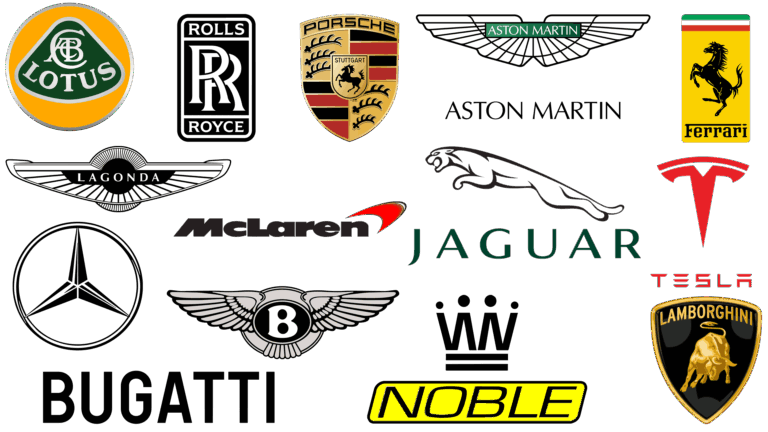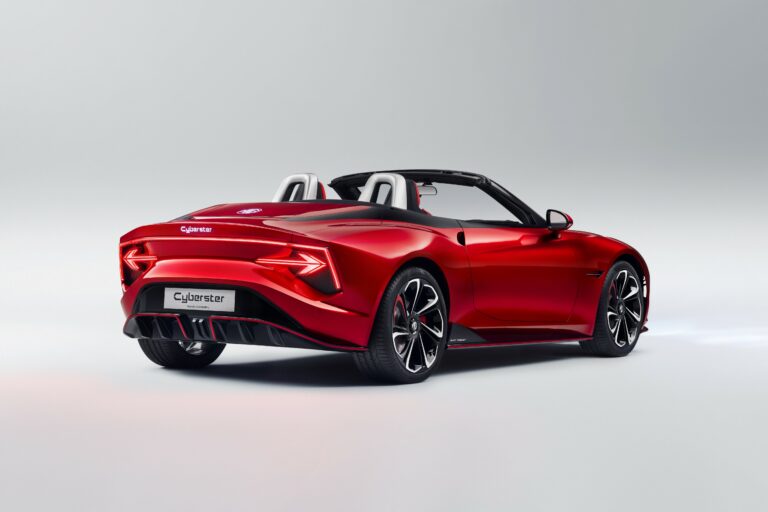Reliable Luxury Car Brands: The Intersection of Opulence and Durability
Reliable Luxury Car Brands: The Intersection of Opulence and Durability cars.truckstrend.com
The allure of a luxury car is undeniable. It promises a blend of exquisite comfort, cutting-edge technology, superior performance, and a statement of sophisticated taste. Yet, for many discerning buyers, the pursuit of luxury is often tempered by a crucial question: Will this vehicle stand the test of time, or will it become a perpetual drain on my finances and patience? This is where the concept of "Reliable Luxury Car Brands" becomes paramount. It’s about finding that sweet spot where opulent indulgence meets unwavering dependability, ensuring your driving experience remains pleasurable, not plagued by frequent, costly repairs.
In an age where complexity often correlates with potential failure points, a truly reliable luxury vehicle offers peace of mind. It translates to fewer unscheduled trips to the service center, lower long-term ownership costs, and a higher resale value. For the savvy consumer, understanding which brands consistently deliver on this promise is not just a preference, but a necessity. This comprehensive guide will delve into what makes a luxury car reliable, highlight the top contenders in this exclusive segment, and provide actionable advice for making an informed purchase.
Reliable Luxury Car Brands: The Intersection of Opulence and Durability
Understanding Reliability in Luxury Vehicles
Reliability, in the automotive context, broadly refers to a vehicle’s ability to perform its intended functions consistently over its lifespan without unexpected failures or significant defects. For luxury cars, this definition takes on added weight. Beyond basic functionality, it encompasses the consistent performance of advanced electronics, sophisticated powertrains, premium interior components, and complex driver-assistance systems.
The paradox often associated with luxury vehicles is their inherent complexity. More features, more advanced materials, and more intricate engineering can, theoretically, introduce more points of failure. However, leading reliable luxury brands defy this by employing:
- Rigorous Testing and Quality Control: Extensive pre-production testing, durability simulations, and meticulous quality checks throughout the manufacturing process.
- Mature Platforms and Proven Powertrains: Utilizing well-established architectures and engines that have been refined over years, reducing the likelihood of unforeseen issues.
- High-Quality Materials and Manufacturing Processes: Investing in superior components and precision assembly that contribute to long-term durability.
- Robust Electrical Systems: Designing complex electrical architectures to be resilient and fault-tolerant, especially for infotainment and safety features.
- Strong After-Sales Support: A comprehensive network of trained technicians, readily available parts, and supportive warranty programs that instill confidence.

Ultimately, a reliable luxury car is one that delivers its promise of comfort and performance day after day, year after year, without becoming a financial burden or source of constant frustration.
Key Attributes of Reliable Luxury Car Brands
When evaluating a luxury brand’s reliability, several key attributes come into play:

- Engineering Excellence and Build Quality: This is the bedrock. Brands renowned for reliability often boast precision engineering, robust powertrains built for longevity, and meticulous assembly processes. This includes the quality of welds, the fit and finish of panels, and the durability of internal components.
- Material Durability and Interior Longevity: Beyond the engine, a luxury car’s interior is a significant part of its appeal. Reliable brands use high-grade leathers, durable plastics, and resilient trim materials that resist wear, fading, and creaking over time, maintaining their premium feel.
- Reliably Implemented Advanced Technology: Luxury cars are technology showcases. Reliability here means that complex infotainment systems, adaptive cruise control, lane-keeping assists, and other electronic features function consistently without glitches, freezes, or expensive sensor failures.
- Strong After-Sales Support and Parts Availability: Even the most reliable car will eventually need maintenance or repair. A reliable brand is backed by a widespread dealer network, skilled technicians who understand complex systems, and readily available parts, ensuring minimal downtime and efficient service.
- Brand Reputation and Owner Feedback: Historical data from consumer surveys (like J.D. Power, Consumer Reports), independent mechanic insights, and real-world owner reviews on forums and review sites provide invaluable insights into a brand’s long-term reliability track record. A consistent pattern of high owner satisfaction regarding durability is a strong indicator.

Top Contenders: The Most Reliable Luxury Car Brands
While "luxury" often brings to mind European marques, some of the most consistent performers in reliability come from Asian manufacturers, though European brands are making significant strides.
- Lexus: Often considered the gold standard for reliability in the luxury segment. As Toyota’s luxury division, Lexus inherits a legacy of exceptional engineering, build quality, and long-term durability. Their vehicles consistently top reliability surveys, offering a serene driving experience coupled with worry-free ownership. Models like the RX SUV, ES sedan, and LS sedan are particularly lauded.
- Acura: Honda’s luxury arm, Acura, similarly benefits from its parent company’s reputation for dependable and efficient vehicles. Acura cars and SUVs offer a sporty yet comfortable driving experience with strong powertrains and excellent build quality. They often represent a great value proposition in the luxury market, combining performance with Honda’s renowned reliability.
- Genesis: Hyundai’s relatively new luxury brand has rapidly established itself as a serious contender, not just in luxury and performance but also in reliability. Genesis vehicles consistently score high in initial quality and long-term dependability studies, often surpassing more established luxury marques. Their comprehensive warranty programs further underscore their confidence in their product’s durability.
- Porsche: Surprisingly, for a brand synonymous with high-performance sports cars, Porsche consistently ranks highly in reliability surveys. This is a testament to their obsessive engineering, use of high-quality components, and meticulous manufacturing processes. While maintenance costs can be higher due to specialized parts and labor, the frequency of unexpected issues is remarkably low for a performance-oriented brand.
- Audi: While historically facing some reliability challenges compared to their Asian counterparts, Audi has made significant strides in recent years. Their commitment to sophisticated engineering and high-quality interiors is now increasingly matched by improved long-term dependability. While more complex systems mean potential for higher repair costs when issues arise, newer Audi models are showing impressive reliability gains.
- Mercedes-Benz & BMW: These German titans of luxury offer unparalleled driving dynamics, prestige, and advanced technology. While their complexity can sometimes lead to higher maintenance frequency and costs than Lexus or Acura, their strong dealer networks, comprehensive warranties, and availability of skilled technicians help mitigate potential issues. Newer generations are showing improved reliability, though they remain more demanding in terms of maintenance adherence.
How to Assess Reliability When Buying a Luxury Car
Whether you’re buying new or used, taking a proactive approach to assessing reliability is crucial.
- Consult Reputable Reliability Data:
- Consumer Reports: Known for its unbiased, member-based surveys on vehicle reliability.
- J.D. Power: Provides various studies on initial quality, vehicle dependability, and customer satisfaction.
- RepairPal/TrueDelta: Offer insights into common repairs and average repair costs for specific models.
- Owner Forums and Social Media Groups: Provide real-world experiences and common issues reported by actual owners.
- Review Vehicle History Reports (for Used Cars): Services like CARFAX or AutoCheck can reveal a car’s past, including accident history, service records, odometer discrepancies, and previous ownership. A well-documented service history is a strong indicator of a cared-for vehicle.
- Prioritize a Pre-Purchase Inspection (PPI): For any used luxury car, a PPI by an independent, trusted mechanic (ideally one specializing in the brand) is non-negotiable. They can identify existing or potential issues that aren’t apparent during a test drive or visual inspection.
- Understand Warranty Coverage:
- New Car Warranty: Familiarize yourself with the bumper-to-bumper and powertrain warranty periods.
- Certified Pre-Owned (CPO) Programs: Many luxury brands offer CPO programs with extended warranties, rigorous inspections, and roadside assistance, providing peace of mind for used car buyers.
- Thorough Test Drive: Pay close attention to how the car drives, sounds, and feels. Test all electronic components, infotainment systems, climate control, and safety features. Listen for unusual noises, feel for vibrations, and check for warning lights.
- Consider Maintenance Costs: Even the most reliable luxury cars will have higher parts and labor costs than mainstream vehicles. Factor this into your budget. Research typical service intervals and associated expenses for the model you’re considering.
Tips for Maintaining Your Luxury Car’s Reliability
Purchasing a reliable luxury car is only half the battle; maintaining its reliability is equally important.
- Adhere Strictly to the Manufacturer’s Service Schedule: This is paramount. Luxury vehicles often have precise maintenance requirements for their complex systems, fluids, and components. Skipping services can lead to premature wear and costly failures.
- Use Genuine OEM Parts or High-Quality Equivalents: While aftermarket parts can be cheaper, genuine Original Equipment Manufacturer (OEM) parts are designed specifically for your vehicle and ensure optimal performance and longevity. If using aftermarket, ensure they are from reputable suppliers.
- Address Issues Promptly: Don’t ignore warning lights, unusual noises, or changes in performance. Small problems can quickly escalate into major, expensive repairs if left unaddressed.
- Find a Reputable Mechanic: While dealerships offer specialized expertise, a trusted independent mechanic specializing in luxury cars can often provide high-quality service at a lower cost. Ensure they have the necessary diagnostic tools and training.
- Drive Responsibly: Avoid harsh acceleration, sudden braking, and aggressive cornering, which can put undue stress on the powertrain, brakes, and suspension components, leading to premature wear.
- Regular Cleaning and Detailing: Keeping your car clean, both inside and out, not only preserves its aesthetics but also helps protect paint, trim, and interior materials from environmental damage.
Challenges and Considerations
Even with the most reliable luxury brands, there are inherent challenges to consider:
- Higher Maintenance and Repair Costs: Even if repairs are less frequent, the cost of parts and specialized labor for luxury vehicles is inherently higher than for mainstream cars.
- Technological Obsolescence and Complexity: Advanced technology, while appealing, can become outdated quickly and be expensive to repair or replace if it fails. Diagnosing issues in complex electrical systems requires specialized tools and knowledge.
- Depreciation: Luxury cars generally depreciate faster than their mainstream counterparts. However, a strong reliability record can help mitigate some of this depreciation by making the vehicle more attractive in the used car market.
- Finding Qualified Technicians: For some niche luxury brands or older models, finding mechanics with the specific expertise and diagnostic equipment can be a challenge outside of dealership networks.
Reliable Luxury Car Brands: Price & Reliability Overview (Estimated)
Please note that prices are highly variable based on model, trim, options, condition (for used), location, and market demand. Maintenance costs are annual estimates for typical driving.
| Brand | Typical New Starting MSRP (Approx.) | Typical 3-5 Yr Used Price Range (Approx.) | Est. Annual Maintenance Cost (Avg.) | Key Reliability Factors & Notes |
|---|---|---|---|---|
| Lexus | $40,000 – $60,000 | $25,000 – $45,000 | $500 – $800 | Consistently top-ranked, Toyota’s DNA, refined engineering, excellent owner satisfaction. |
| Acura | $38,000 – $55,000 | $20,000 – $40,000 | $400 – $700 | Honda’s dependability, strong powertrains, good value proposition. |
| Genesis | $40,000 – $65,000 | $28,000 – $50,000 | $600 – $900 | Rapidly rising in reliability charts, strong warranty, modern tech. |
| Porsche | $65,000 – $100,000+ | $40,000 – $80,000 | $800 – $1,500+ | Exceptional engineering for a performance brand, high build quality, low defect rate. |
| Audi | $45,000 – $70,000 | $25,000 – $50,000 | $700 – $1,200 | Significant improvements in recent years, sophisticated tech (can be complex). |
| Mercedes-Benz | $48,000 – $80,000 | $28,000 – $60,000 | $800 – $1,500 | Luxury leader, advanced features; reliability improving, but complexity means higher repair costs. |
Disclaimer: All prices and maintenance costs are approximate estimates and can vary significantly based on specific models, trim levels, options, geographic location, vehicle condition, and market fluctuations. They should be used as a general guide only.
Frequently Asked Questions (FAQ)
Q1: Is reliability more important than luxury features when buying a luxury car?
A1: It depends on your priorities. For many, the peace of mind and lower long-term ownership costs offered by a reliable luxury car outweigh having every cutting-edge feature. A balance is often ideal, where essential luxury features are reliably implemented.
Q2: Do reliable luxury cars still cost more to maintain than non-luxury cars?
A2: Yes, generally. Even reliable luxury cars have higher maintenance costs due to more expensive parts, specialized fluids, and higher labor rates for skilled technicians. Reliability means fewer unscheduled repairs, but routine maintenance is still more costly.
Q3: Are older luxury cars still reliable, or do they become money pits?
A3: Older luxury cars can be reliable if they are from a brand known for durability (e.g., Lexus), have a meticulous service history, and have been properly maintained. However, as they age, complex electronics and specialized components are more prone to failure, potentially leading to higher repair costs. A pre-purchase inspection is crucial for older models.
Q4: How do I find a reliable mechanic for my luxury car?
A4: Start by asking for recommendations from other luxury car owners, check online reviews (Google, Yelp), and look for independent shops specializing in your brand. Ensure they have certifications, specific diagnostic tools for luxury vehicles, and offer transparent pricing.
Q5: What’s the best way to check a used luxury car’s reliability before buying?
A5: The best approach combines several steps: check reputable reliability reports (J.D. Power, Consumer Reports), obtain a comprehensive vehicle history report (CARFAX/AutoCheck), get a pre-purchase inspection by an independent mechanic specializing in the brand, and thoroughly test drive the vehicle while checking all functions.
Conclusion
The dream of owning a luxury car doesn’t have to be a nightmare of constant repairs and exorbitant bills. By prioritizing brands renowned for their reliability, consumers can enjoy the best of both worlds: the unparalleled comfort, advanced technology, and prestige of a high-end vehicle, coupled with the peace of mind that comes from dependable engineering.
Whether you lean towards the legendary dependability of Lexus and Acura, the rapidly ascending quality of Genesis, or the surprising robustness of Porsche, an informed decision based on research, a thorough inspection, and a clear understanding of long-term ownership costs will lead you to a luxury car that truly elevates your driving experience, without the constant worry. A reliable luxury car isn’t just a status symbol; it’s a smart investment in lasting satisfaction.






